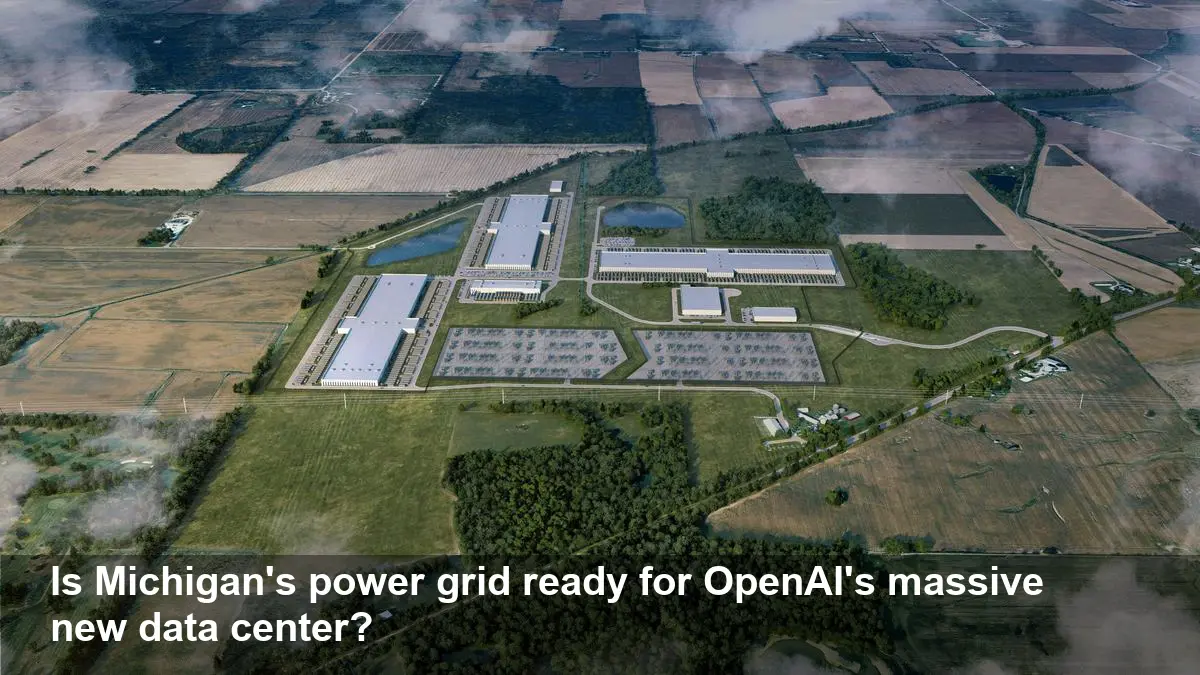OpenAI's Insane Power Grab Shocks Michigan

- A colossal "hyperscale" data center backed by OpenAI and Oracle is planned for a 250-acre site on farmland near Ann Arbor, Michigan.
- The project is spearheaded by a real estate firm connected to billionaire Stephen Ross's business empire.
- The facility's projected energy consumption is staggering, potentially requiring 25% more power than DTE Energy currently supplies to its entire customer base.
- Construction is slated to begin in 2026, contingent on approval from the Michigan Public Service Commission.
A New Tech Hub or an Energy Crisis?
A quiet corner of Michigan is set to become the epicenter of a monumental technological development that carries both immense promise and significant concerns. Tech giants OpenAI, the creator of ChatGPT, and Oracle have partnered with a real estate development company tied to billionaire megadonor Stephen Ross to construct a massive data center campus in Saline Township, just outside Ann Arbor.
The plan, officially announced Thursday, outlines the transformation of 250 acres of local farmland into a sprawling "hyperscale" data center. This move signals a major investment in the state's tech infrastructure, but it comes with an astonishing environmental and logistical price tag that is raising alarms across the state.
Unprecedented Power Demands
The most shocking detail of the proposal is its colossal energy requirement. According to initial reports, the completed data center is expected to consume an amount of energy equivalent to a 25% increase over what DTE Energy Co. currently provides to its entire existing customer base. This unprecedented demand raises critical questions about the stability of the local power grid, the source of this new energy, and the potential impact on utility costs for residents and other businesses in the region.
Critics and local stakeholders are already beginning to question whether the state's infrastructure is prepared for such a monumental power drain. The project's success hinges on navigating these complex energy challenges, which will be a primary focus of the upcoming regulatory review.
The Players Behind the Plan
This ambitious venture is a collaboration between some of the biggest names in technology and real estate. OpenAI's involvement underscores the massive computational power required to train and operate advanced artificial intelligence models. Partnering with Oracle, a leader in cloud infrastructure, provides the enterprise-level expertise needed for a project of this scale. The connection to Stephen Ross's business empire adds a layer of significant financial and developmental power, ensuring the project has the resources to move forward if it clears regulatory hurdles.
What Lies Ahead
While the vision is grand, the project is not yet a reality. The entire plan is pending a thorough review and subsequent approval from the Michigan Public Service Commission. This regulatory body will be responsible for assessing the project's impact on the state's energy infrastructure and the public good. With a target start date of 2026, developers will be working to address the commission's concerns and secure the necessary green light to break ground. The decision will set a major precedent for how Michigan balances attracting high-tech investment with managing its vital public resources.





